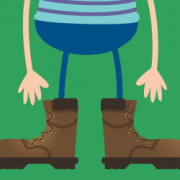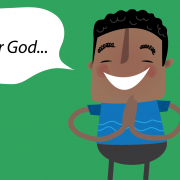Using your windshield wipers
While you’re driving in heavy rain, pull over and turn off the windshield wipers. Let your kids observe how the view through the windshield becomes completely obscured by the rain.
Explain to your kids how experiencing strong emotions (such as grief, anger, fear, worry and even excitement), can obscure our view so that we don’t always think clearly or make good decisions.
Next, invite your kids to suggest scenarios where they might find themselves in a “rainstorm” of emotions.
Now read Psalm 118. Impress on your children that, even though David was in great trouble and distress, he still started and ended the psalm by praising God and talking about God’s never ending love. In the midst of it all David drew comfort from reminding himself that God was with him.
Next, turn on your windshield wipers to clear the view again.
Continue your discussion, impressing on your kids that the best way to make a “cool decision in a hot seat” is to talk to God. We can ask Him to be our windshield wipers so we manage our emotions well. He can help us see clearly so we don’t hurt others when we are feeling bad. And He can help us not get “stuck” in our tears of sadness, disappointment or frustration; He clears the view for us so we can see how to keep moving ahead and find our way through hard times and difficult emotions.
Relevant Scripture
Psalm 118:5-6 “Out of my distress I called on the Lord; the Lord answered me and set me free. The Lord is on my side; I will not fear. What can man do to me?”









